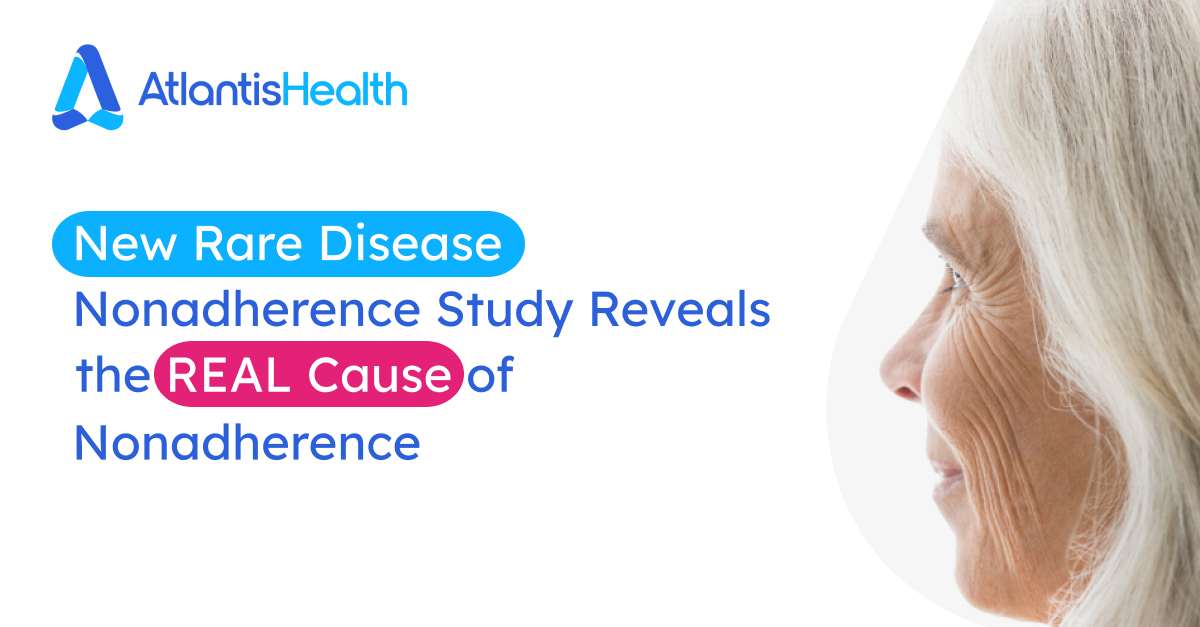Surprise Finding: Forgetting Isn't the Real Reason for Rare Disease Treatment Nonadherence

Have you ever discovered a worrisome mole or developed a symptom you'd rather just ignore? It's a universal experience. Sometimes we choose denial over reality – if we ignore it, it'll just go away, right? Such a simple quirk of human psychology may be more important than you think, potentially holding the key to solving rare disease nonadherence.
Experts previously had asserted that forgetfulness or logistical problems were the primary reason behind nonadherence. People wanted to take their medication, but life got in the way and they forgot to take it. New findings cast doubt on these assumptions, painting a more complicated picture of the reasons behind nonadherence.
We Need to Talk About the Burden of Rare Disease
Confronting the reality of rare diseases involves acknowledging the multifaceted nature of their management. Much like chronic illnesses, effective management extends well beyond the scope of medication adherence. It entails a myriad of self-management tasks, from lifestyle modifications such as dietary restrictions and exercise to the commitment to regular healthcare appointments and blood tests.
Rare disease management thus requires substantial effort on the part of the patient, an effort that can become burdensome over time. Particularly for those who have been living with their diagnosis for a significant period, this burden can exacerbate the inclination towards nonadherence. We just don't want to deal with the problem anymore.
This insight underscores the importance of ongoing support for these patients. As the burden of disease management persists, so does the need for assistance to manage not just the illness but also the inherent challenges of adherence to treatment protocols.
The Psychology Behind Nonadherence
Medication nonadherence isn't a simple cause-and-effect issue. It's easy to pin it on forgetfulness, but that's far from the entire story. Medication nonadherence can often be intentional, a conscious decision influenced by deeper beliefs and concerns about illness and treatment.
When patients report forgetting to take their medication, we must question what underlies this forgetfulness. It often stems from beliefs about their medication or illness – if they have concerns about their medication or don't view it as necessary, it becomes less of a priority, and they 'forget.'
Patients may also claim forgetfulness because it's easier and less confrontational than voicing doubts or concerns about their treatment – it's less challenging to say, "I forgot" than "I don't think I need this treatment" or "I'm worried about the side effects."
Taking "forgetting" at face value risks implementing ineffective strategies to improve adherence. If we mistakenly attribute medication nonadherence to forgetfulness, we may focus on memory aids and reminders, which will prove futile if the issue isn't forgetfulness at all. Understanding the real reasons for nonadherence is, therefore, crucial for developing and implementing effective solutions.
Understanding the Findings of the Study
Multiple studies [1] have highlighted how forgetting to take their medicines is confounded by people’s thoughts about their treatment and illness.
And one study even shows that a significant percentage of patients with rare diseases – up to 40% – consciously decide not to adhere to their treatment regimen. This decision is often rooted in their perception of the illness, the perceived necessity of the medication, and concerns about potential side effects.
In another study of patients with cystic fibrosis [2], a key difference between high and low adherers was how they saw their own behavior: low adherers used 'being forgetful' as an excuse to allow more consistent nonadherence.
Rare Disease: How to Improve Nonadherence Rates
Drawing from our in-depth understanding of the reasons behind rare disease treatment nonadherence, we can develop more targeted strategies to improve adherence rates. One of the key recommendations based on the latest research is for Healthcare Providers (HCPs) to elicit patients’ beliefs about medication and illness in an open and nonjudgement way to support honest discussion.
With open communication and trust, then HCPs can not only explore their patients’ understanding of their prescribed treatments, but they can also help normalize or destigmatize nonadherence and create a safe place to discuss any concerns or questions people living with rare diseases might have about either their illness or their treatment plan.
Once HCPs fully understand the nuanced reasons behind medication nonadherence, then they will be better equipped to provide targeted assistance and effective interventions.
Final Thoughts
Understanding rare disease medication nonadherence is crucial to improving treatment outcomes. While forgetting does exist, most nonadherence is a conscious decision stemming from deep-seated beliefs and perceptions about the illness and the treatment. By acknowledging this fact and understanding the real reasons for nonadherence, we can develop practical solutions that address these issues and significantly improve adherence rates.
Rare disease medication nonadherence rates are alarmingly high, making this issue one that cannot be ignored. We hope our new Rare Disease Nonadherence Report will serve as a valuable resource for all stakeholders supporting and treating people living with rare diseases.
The new Rare Disease Nonadherence Report provides a comprehensive overview of the latest research and offers actionable insights on tackling nonadherence in rare disease treatment. It's time we take a closer look at nonadherence, move beyond surface-level solutions, and tailor interventions that genuinely resonate with the experiences and needs of patients.
References
- Unni E. J., Farris, K. B. Unintentional non-adherence and belief in medicines in older adults. 2011, May, National Library of Medicine.
- Drabble, S. J., O'Cathain, A., Arden, M. A., Hutchings, M., Beever, D., & Wildman, M. When is forgetting not forgetting? A discursive analysis of differences in forgetting talk between adults with cystic fibrosis with different levels of adherence to nebulizer treatments. Qualitative health research. 2019; 29(14): 2119-2131.
- Manuel, J. I., Covell, N. H., Jackson, C. T., & Essock, S. M. Does assertive community treatment increase medication adherence for people with co-occurring psychotic and substance use disorders? Journal of the American Psychiatric Nurses Association. 2011; 17(1): 51-56.
